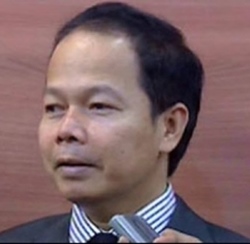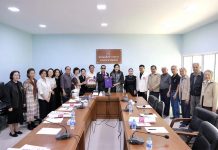BANGKOK, April 26 – A Thai court today accepted charges against former foreign minister Noppadol Pattama over Cambodia’s unilateral registration of the Phra Viharn (Preah Vihear) temple ruins as a World Heritage site.
The National Anti-Corruption Commission (NACC) filed the lawsuit with the Supreme Court’s Criminal Division for Political Office Holders, charging him with breaching Section 157 of the Criminal Code by signing the Thai-Cambodian joint communiqué without seeking approval from Parliament as required by law.

The communiqué, endorsed on June 18, 2008, advocated Cambodia’s application to unilaterally register the ancient Hindu temple on the border of the two countries as a World Heritage site.
There were protests from some quarters of Thai society that the application should be made by both countries, and not by Cambodia alone, as adjacent areas to which Thailand also claims ownership were part of the temple site.
According to the NACC, Mr Noppadol discussed the joint communiqué with Foreign Ministry officials after which Mr Virachai Plasai, then director general of the Treaties and Legal Affairs Department, objected.
Mr Noppadol asked the cabinet to remove Mr Virachai from his post despite a protest by the permanent secretary for foreign affairs, the NACC said.
Defendant Noppadol claimed that he could not work with Mr Virachai and visited Phnom Penh to meet with Cambodian Deputy Prime Minister Sok An on Phra Viharn and border demarcation, and to work on the joint communique.
The NACC said the defendant secretly proposed the issue to the National Security Council with a hidden motivation, and later raised it in the Cabinet without distributing documents in advance to cabinet members.
Mr Noppadol merely showed a map on the screen and it took the cabinet only 15 minutes to consider the issue, the NACC said, adding that the Thai-Cambodian joint statement was an agreement – an agreement to which must be under Section 190 of the Constitution and must be approved by Parliament, after a public hearing is required.
The court set July 5 for the first hearing.




